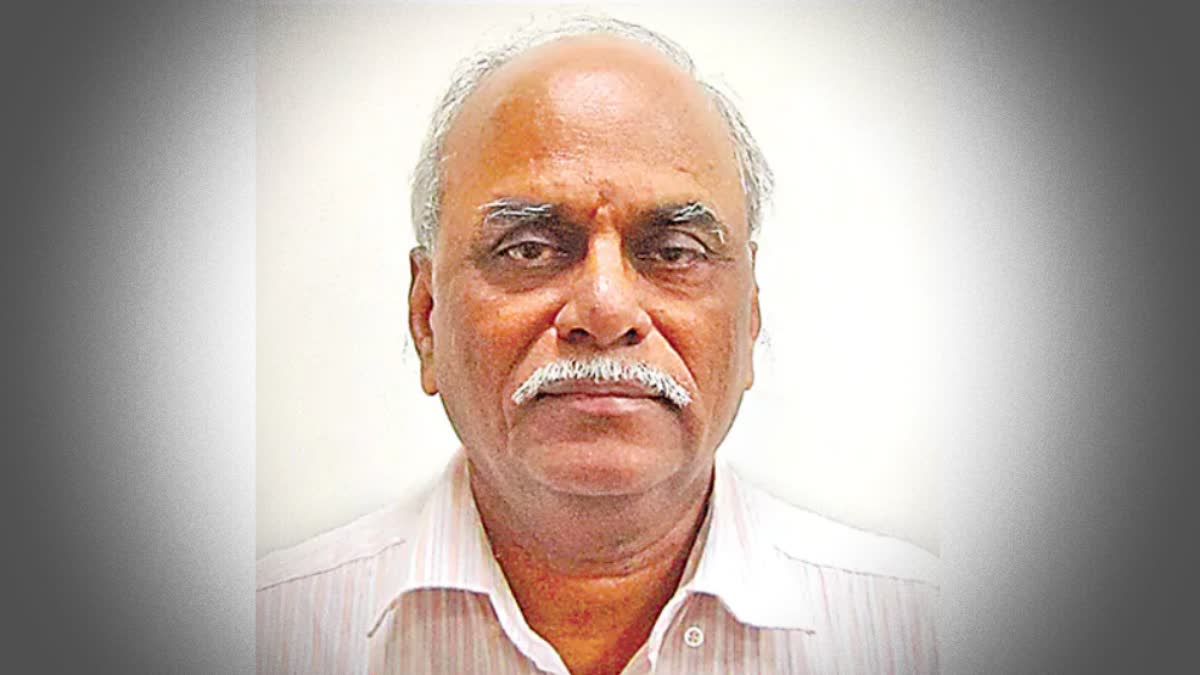Hyderabad: As avian influenza (bird flu) continues to pose a significant threat to the poultry sector, prevention remains the only viable defence, according to Dr. Mandava Venkata (MV) Subbarao, a leading veterinary microbiologist and bird flu expert. He emphasised the urgent need for central and state governments to take immediate action to safeguard the poultry industry in the country.
An alumnus of AP Agricultural University, Dr. Subbarao earned his PhD from Jabalpur University. He has conducted extensive research on animal diseases at the Indian Veterinary Research Institute (IVRI) and retired as a virologist, research dean, and professor at the Joint State Agricultural University. Currently, he serves as an advisor to the Asian Development Bank, the World Bank, and the Food and Agriculture Organization (FAO) of the United Nations.
Speaking exclusively to ETV Bharat, Dr Subbarao shared insights into the spread of avian influenza in India.
Why is Bird Flu Resurfacing?
“Avian influenza has existed in India since 2004. However, it resurfaced in some areas this year due to cold weather from November to January. It is caused by the influenza Type-A virus, which primarily affects birds but can also infect animals including pigs, dogs, and even humans in rare cases.”
How Does the Virus Spread?
Migratory birds play a key role in the virus’s transmission.
- Research conducted at Chilika Lake, Odisha, involved attaching satellite telemeters to migratory birds to track their origins.
- The virus enters water bodies through infected migratory birds' saliva, droppings, and bodily fluids.
- The virus spreads from contaminated water to poultry farms, affecting chickens and other birds.
Symptoms of Avian Influenza
- Swollen heads and closed eyelids.
- Fatigue and inability to peck.
- Feather loss.
- Soft-shelled or shell-less eggs.
Preventive Measures: No Cure, Only Caution
According to Dr. Subbarao, there is currently no treatment for bird flu in chickens, though vaccine research continues. Preventive measures and biosecurity protocols are the only defense against outbreaks as per Subbarao.
Poultry Farmers Should:
- Stay alert in areas where migratory birds are present.
- Report any signs of illness in chickens to veterinarians immediately.
- Implement biosecurity measures at poultry farms.
- Disinfect tools and equipment regularly.
- Wear PPE kits and goggles when handling poultry.
- Chlorinate water to prevent contamination.
- Bury dead chickens in a six-foot pit.
- Restrict transportation of poultry and eggs from affected areas.
- Government’s Role: A Multi-Pronged Approach Needed.
Dr Subbarao believes that India’s poultry sector is crucial for food security, economic stability, and employment. Governments must implement a multi-agency approach rather than relying only on animal husbandry and health departments, he said. According to Subbarao, the following steps are inevitable:
- Educate poultry farmers on biosecurity measures
- Expand bird flu testing facilities—India currently has only one lab, in Bhopal
- Strictly monitor poultry transport from infected areas
- Enhance coordination between different departments for rapid response
Is It Safe to Eat Chicken and Eggs?
Subbarao says, “Yes, in unaffected areas, poultry consumption is safe. The virus cannot survive high temperatures. Chicken and eggs should be cooked thoroughly (70°C-100°C). If chicken bones turn soft during cooking, it indicates sufficient heat to neutralize the virus.”
Prevention Over Cure
“Bird flu outbreaks can be devastating, but with vigilance and strict preventive measures, large-scale infections can be avoided,” Dr. Subbarao concluded.
Read More:



